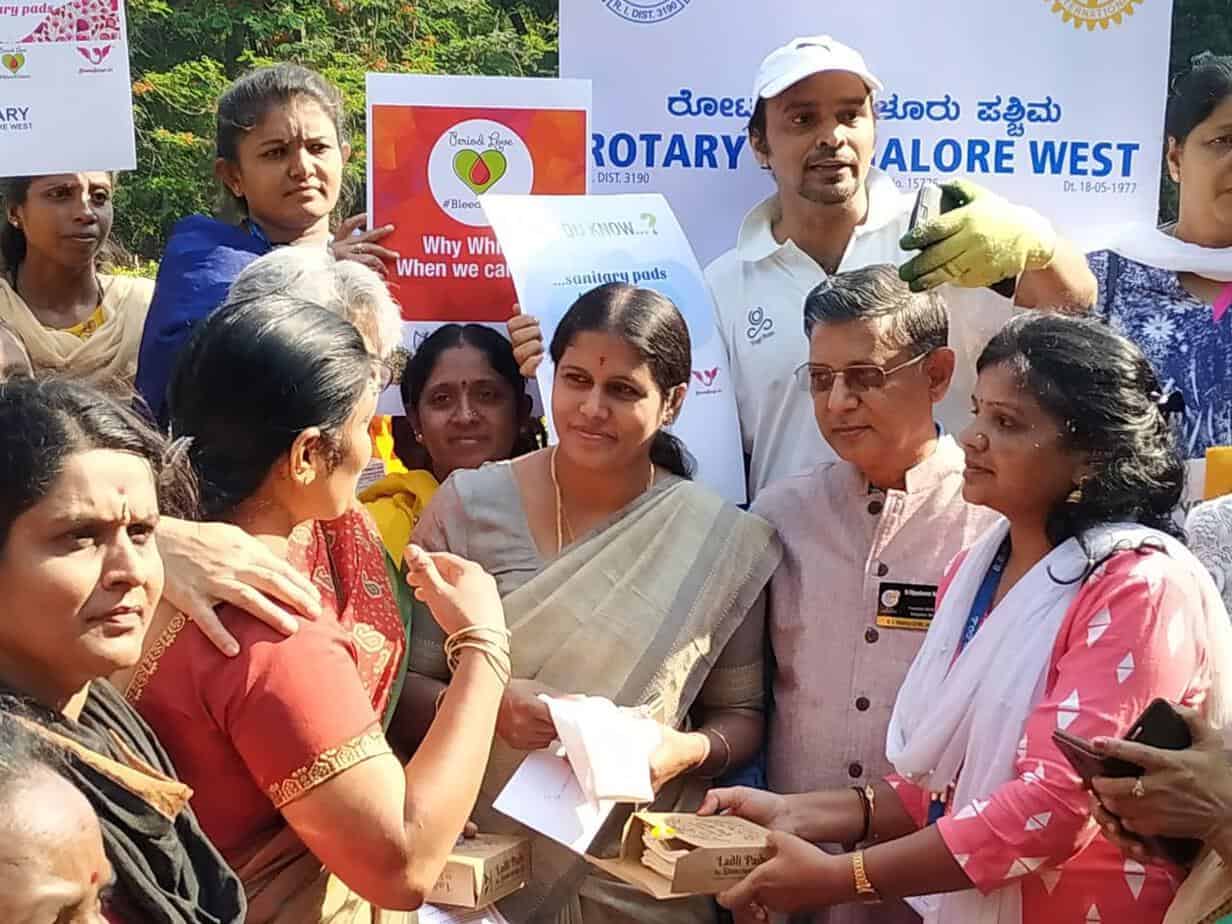May 28th is World Menstrual Hygiene Day, and around this time, government organisations focus on menstrual health. Increasingly, there are conversations and programmes around Menstrual Hygiene Management (MHM).
While this is a welcome change, these programmes often end up communicating that the only “good” way to manage periods is by using disposable sanitary pads. Many organisations and schemes donate pads or make them available at a subsidised rate. The pads are laden with chemicals that are extremely harmful to health and create havoc in the waste management world.
Menstrual cups and cloth pads are a healthier, cost-effective, comfortable and trash-free alternative to disposable pads, but unfortunately, not many people are aware of these. Hence, Rotary International, in association with the sustainable solutions company Stonesoup, various eco-activists and organisations, is running a year-long campaign ‘Period Love #BleedGreen’. The campaign aims to exclusively discuss sustainable options for period care in all the WINS (WASH in Schools) programmes.
The campaign was kick-started on Saturday with a peaceful march from KSLTA Stadium, via Cubbon Park, to the BBMP office. Six clubs of Rotary (Bangalore West, Bangalore Ulsoor, Spandana, Platinum City, Indiranagar and South West), Stonesoup team, BBMP link workers and activists marched with placards explaining sustainable alternatives, and walked around Cubbon Park creating awareness.
They handed over a petition to Mayor Gangambike Mallikarjuna, requesting to include sustainable alternatives in all government programmes. In an earlier donation programme by Innerwheel Koramangala, a few link workers had been gifted menstrual cups. Link workers who use the cup shared their experiences with the Mayor.

The campaigners petitioned Mayor Gangambike Mallikarjuna to include sustainable alternatives in all government programmes
“Our job involves being on the move constantly, and we do not always have access to bathrooms that have dustbins. With the cup, I don’t have to worry about it at all. I empty the cup once in the morning while taking bath, then I only need to empty it again at night after I reach home,” said Kusuma, a link worker in ward number 3, BBMP.
“Cups and cloth pads are such wonderful alternatives to sanitary pads. I have been talking about them across the world for the past three years. I am proud that Rotary has taken up this cause; it will help convey the message far and wide,” said Dr Meenakshi Bharat, a gynaecologist with 39 years of experience, waste warrior and a Rotarian.
“This Rotary Day around World Menstrual Hygiene Day, we decided to create awareness on the impact of pads on women’s health and the environment,” said Dr Eragam Venkatesh, District Director of Rotary Days.
“Sanitary waste is proving to be a huge challenge for us, and we are looking for solutions. I am happy to hear about these sustainable alternatives, and to interact with women who have used them. I will look into integrating these options in a few of our programmes as pilot,” said the Mayor.
“Unlike popular belief, 70 percent women in urban areas and 45 percent women in rural areas use disposable pads. If we have to convey the message of sustainability to every one of the 355 million menstruating women in India, we need the government to believe in it. Every awareness and distribution programme should include reusables as an option. We need more organisations and individuals to join us to create this change,” said Malini Parmar, Co-founder of Stonesoup.
From May 25th to June 5th, more Rotary clubs across the country are likely to host marches/sessions to mark the launch of this nation-wide campaign.
[This article is based on a press release from Stonesoup, and has been published here with minimal edits]
Hi I need information on conducting a awareness on menstrual hygiene for my former scholl Jawahar navodaya vidyalaya doddaballapura bangalore rural district, kindly contact me on 8073215425